They were found in mid-november in the Salish Coast region of Cascadia. They were growing out of woodchips composed of a mixture of western hemlock (majority), and western red cedar.
Side view of one full mature specimen:
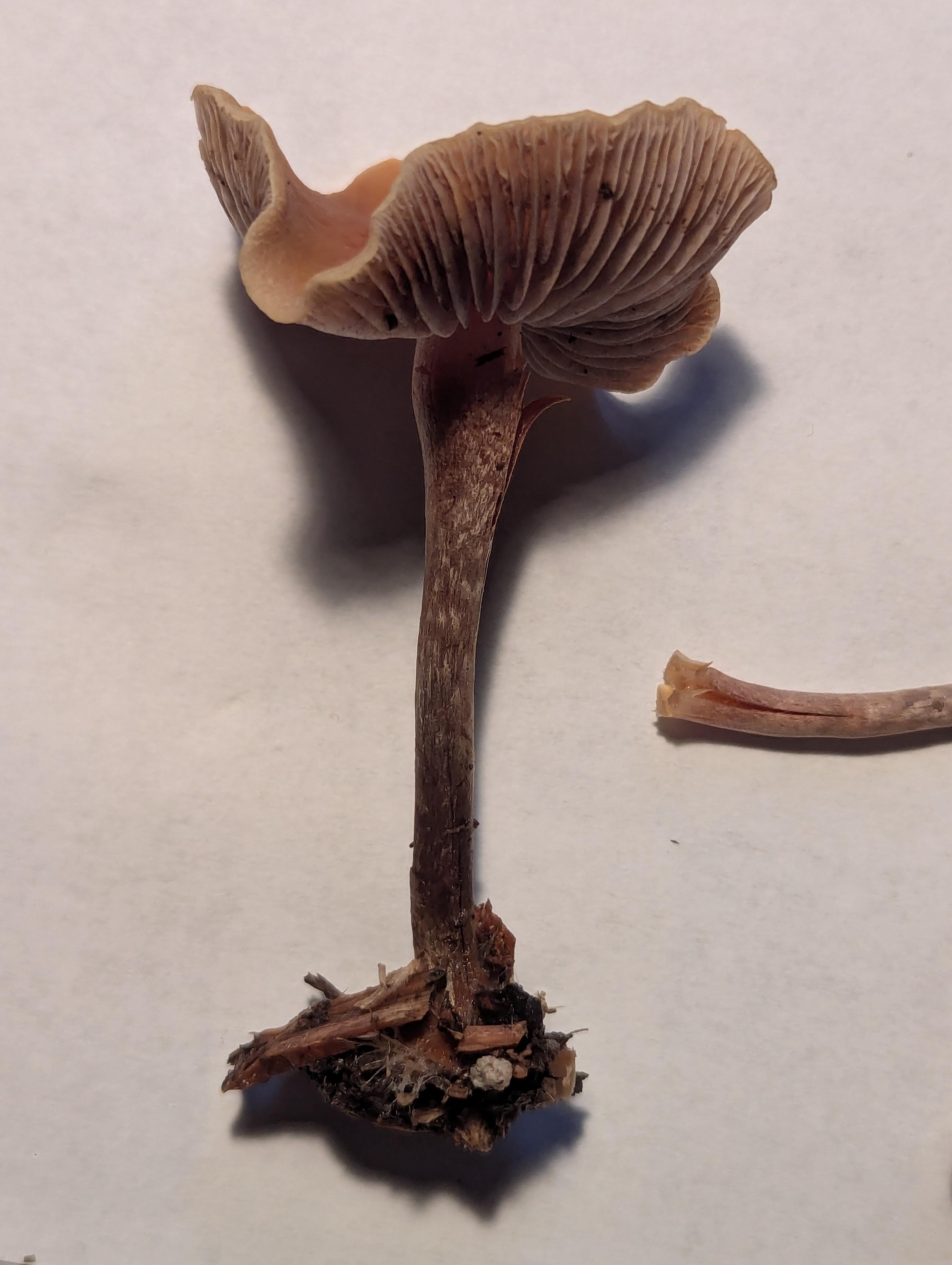
A group with a sample of the substrate (the cap appears to be umbonate):

A closeup side view, and internal view of the stem (it appears to be hollow):
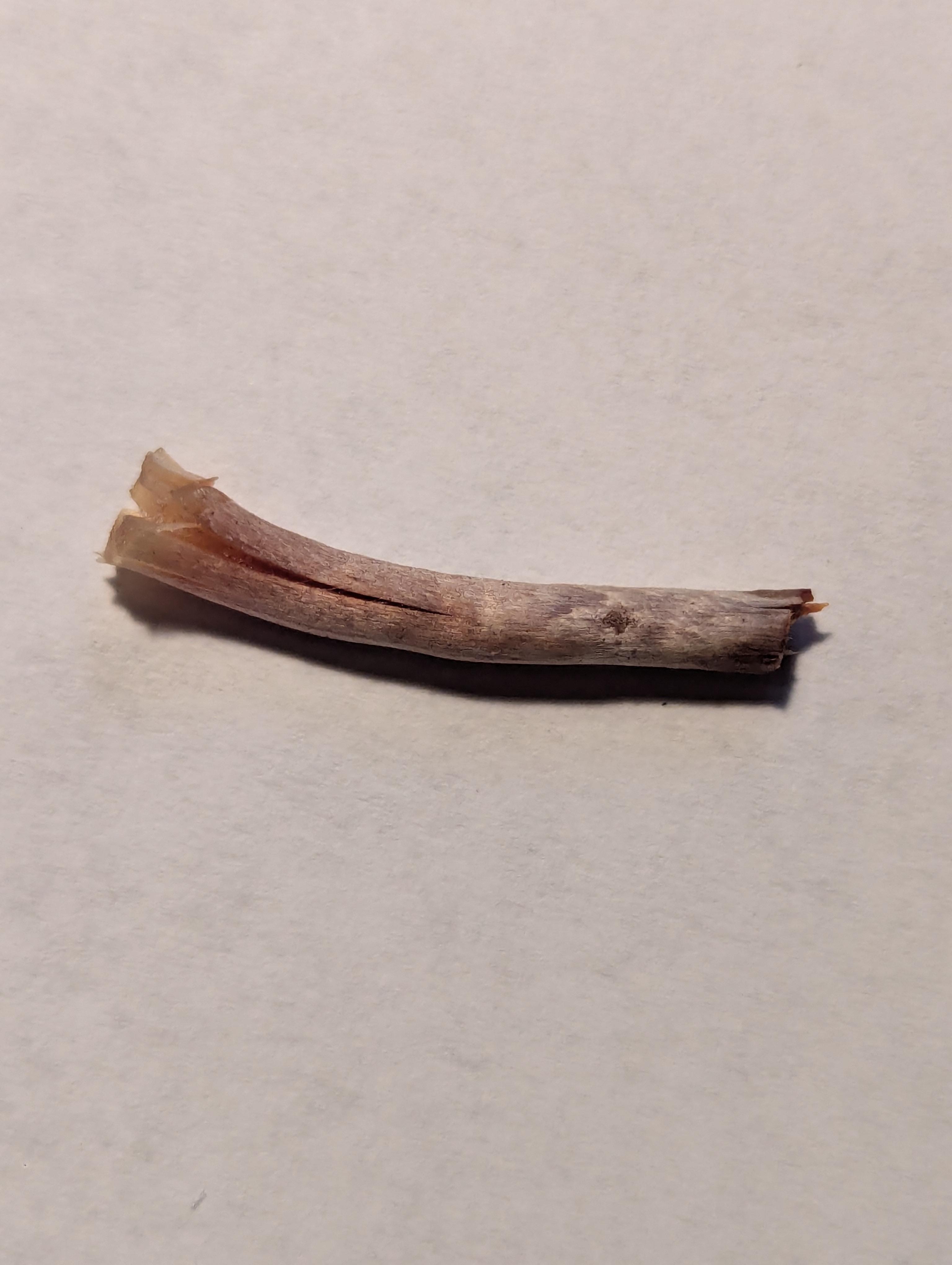
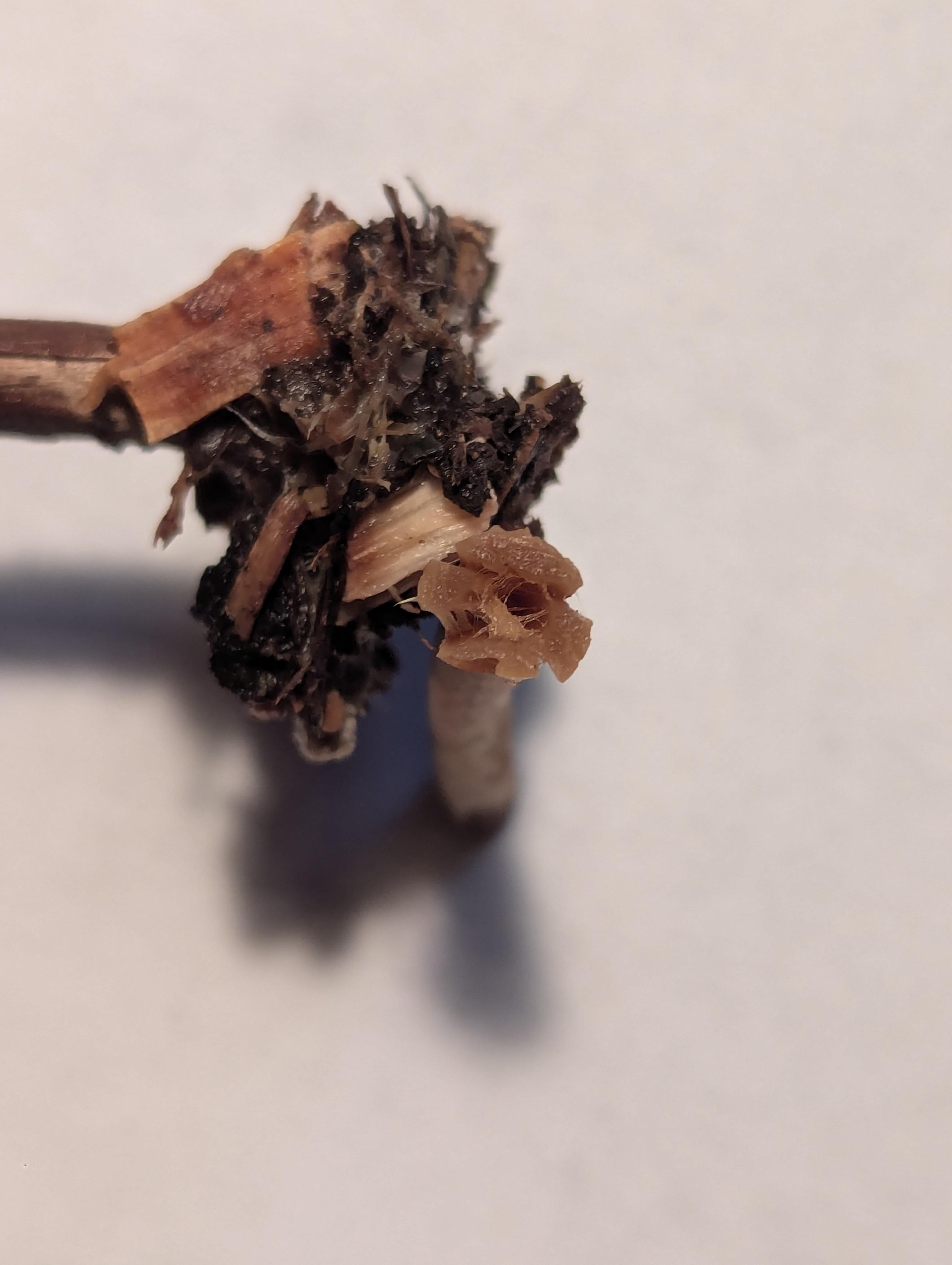
Cross section of the gills — they appear to be adnate, or sub-decurrent:
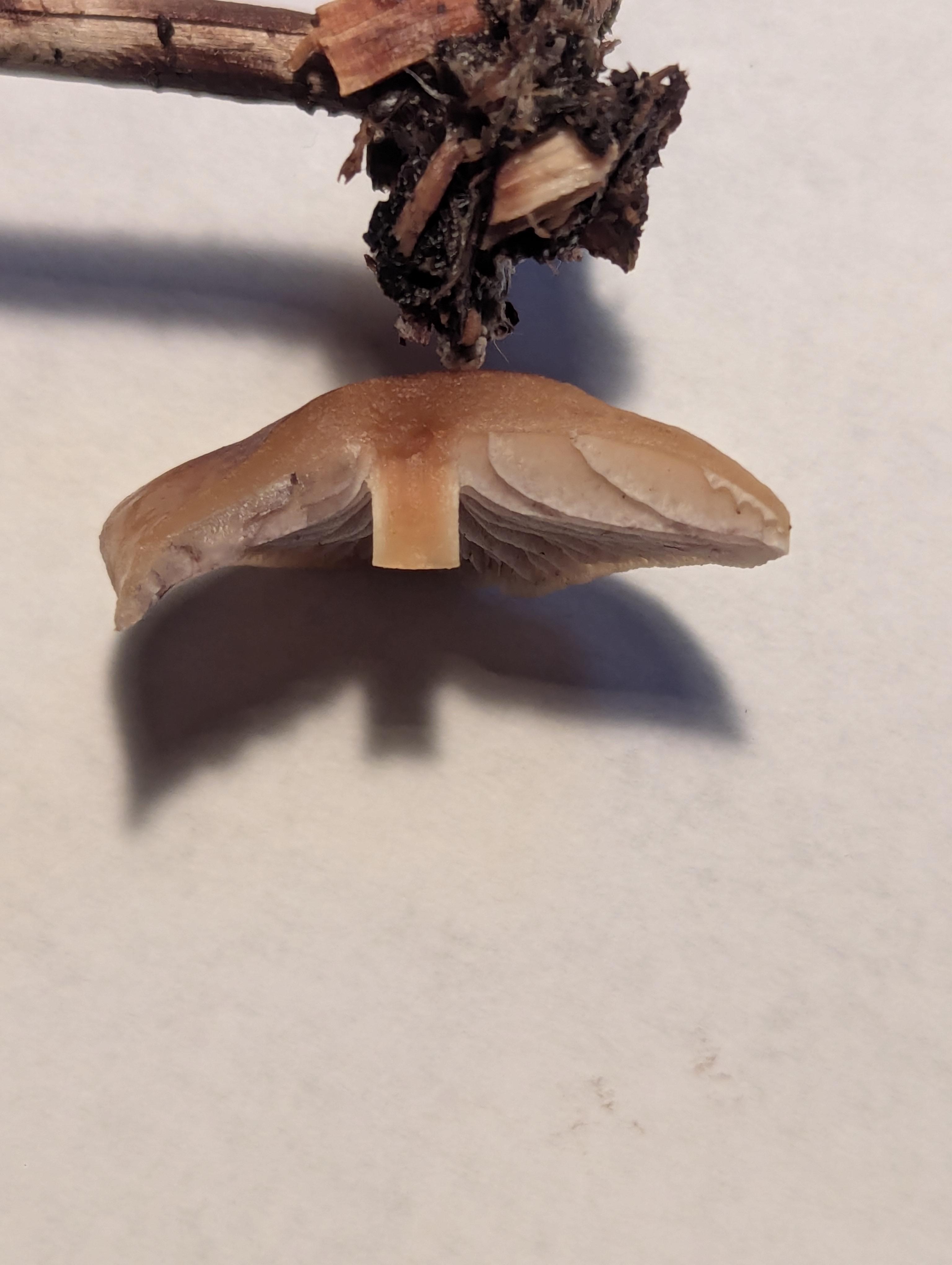
Underside of view of the gills:
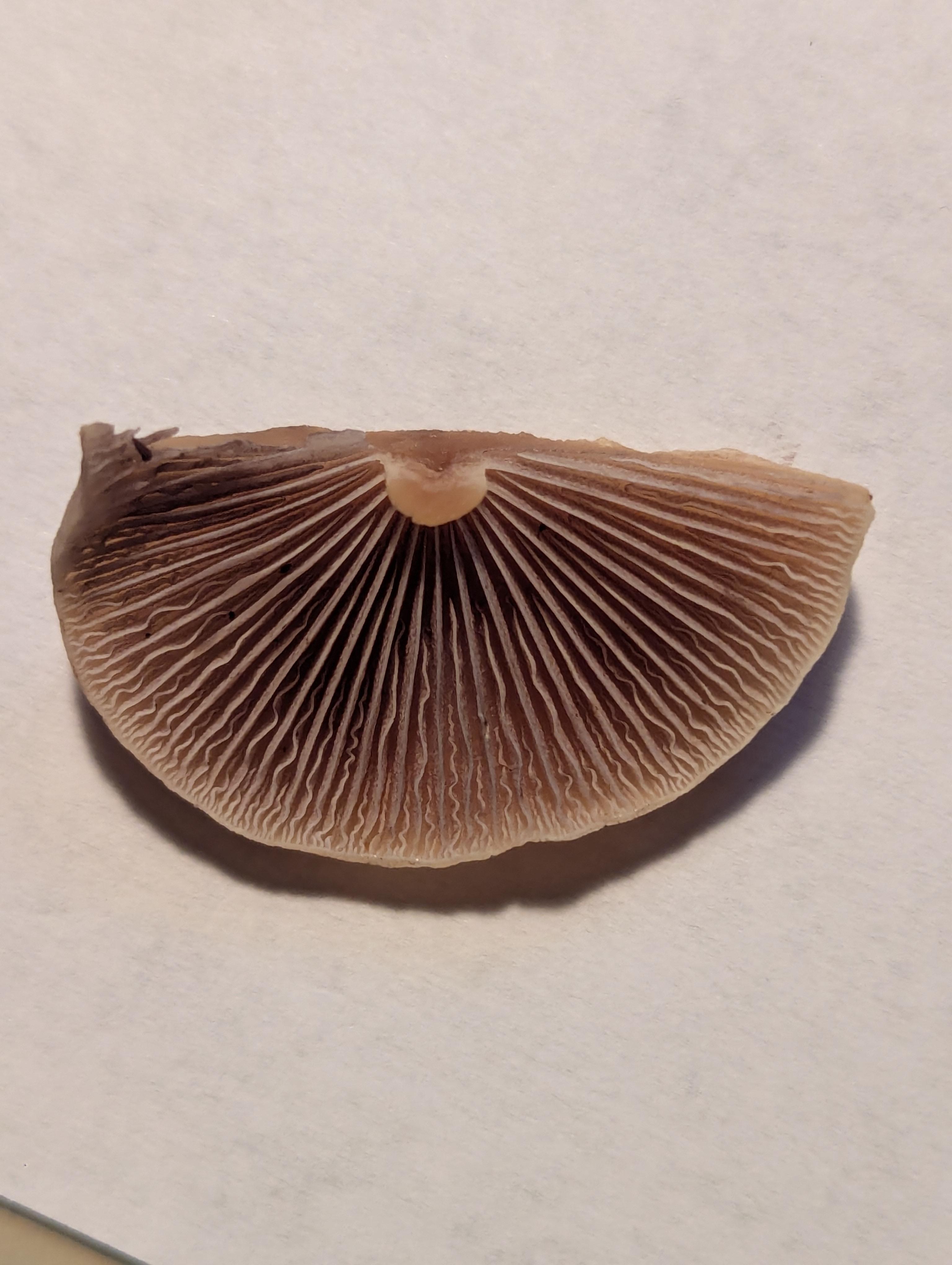
Spore print (first on white background (the split is due to two halves), second on a black background):
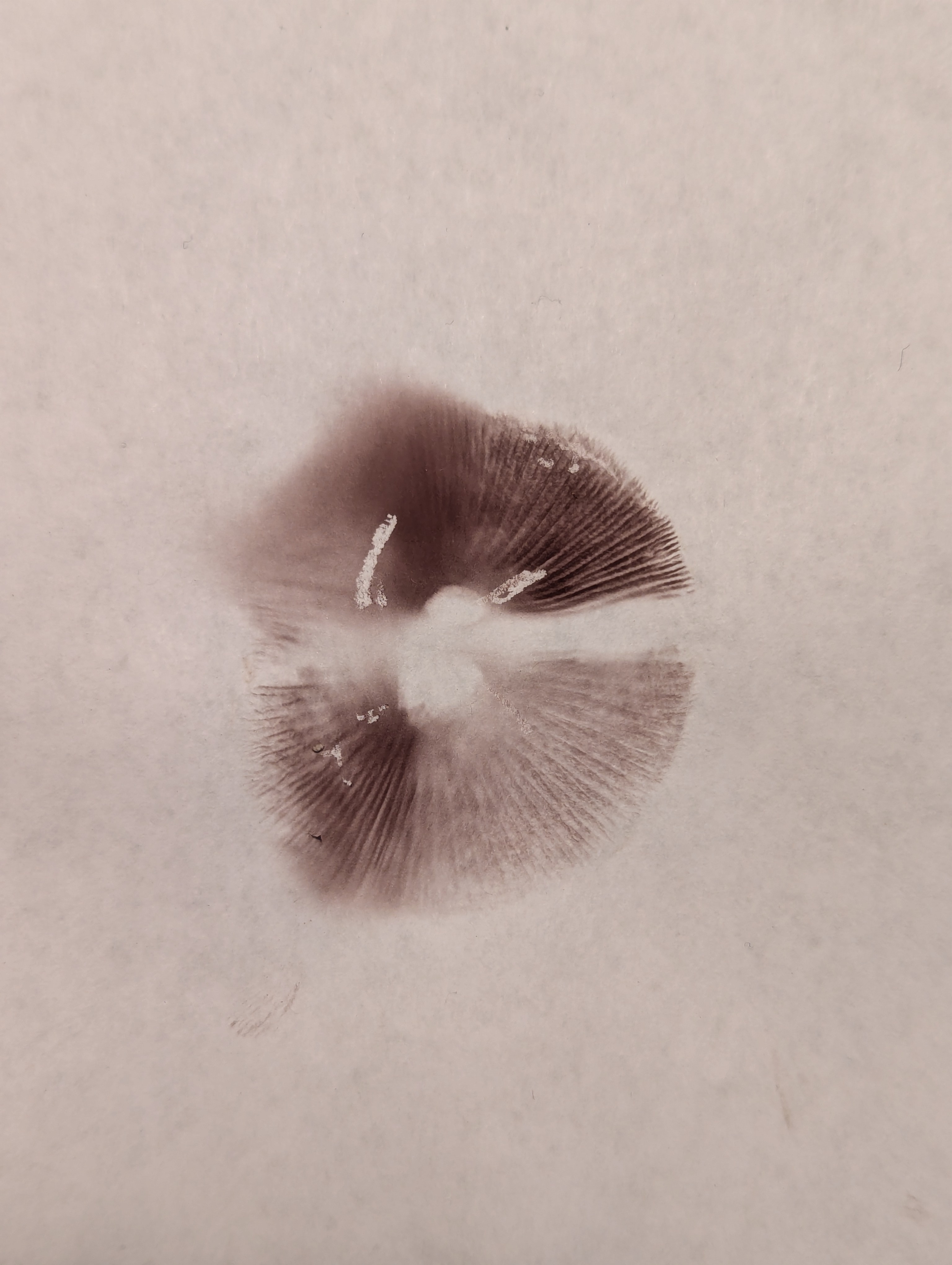
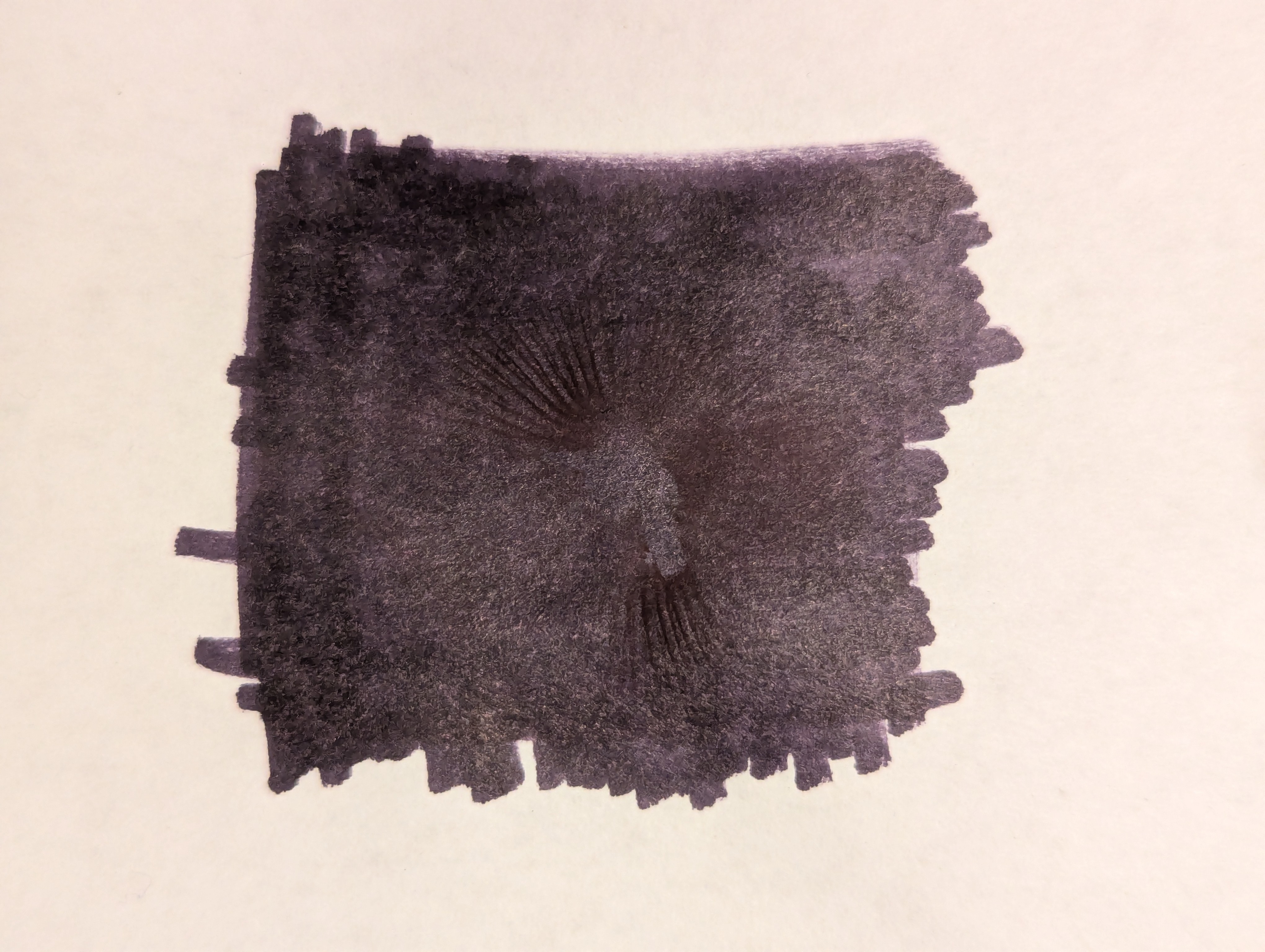
Examples specimens once dried:
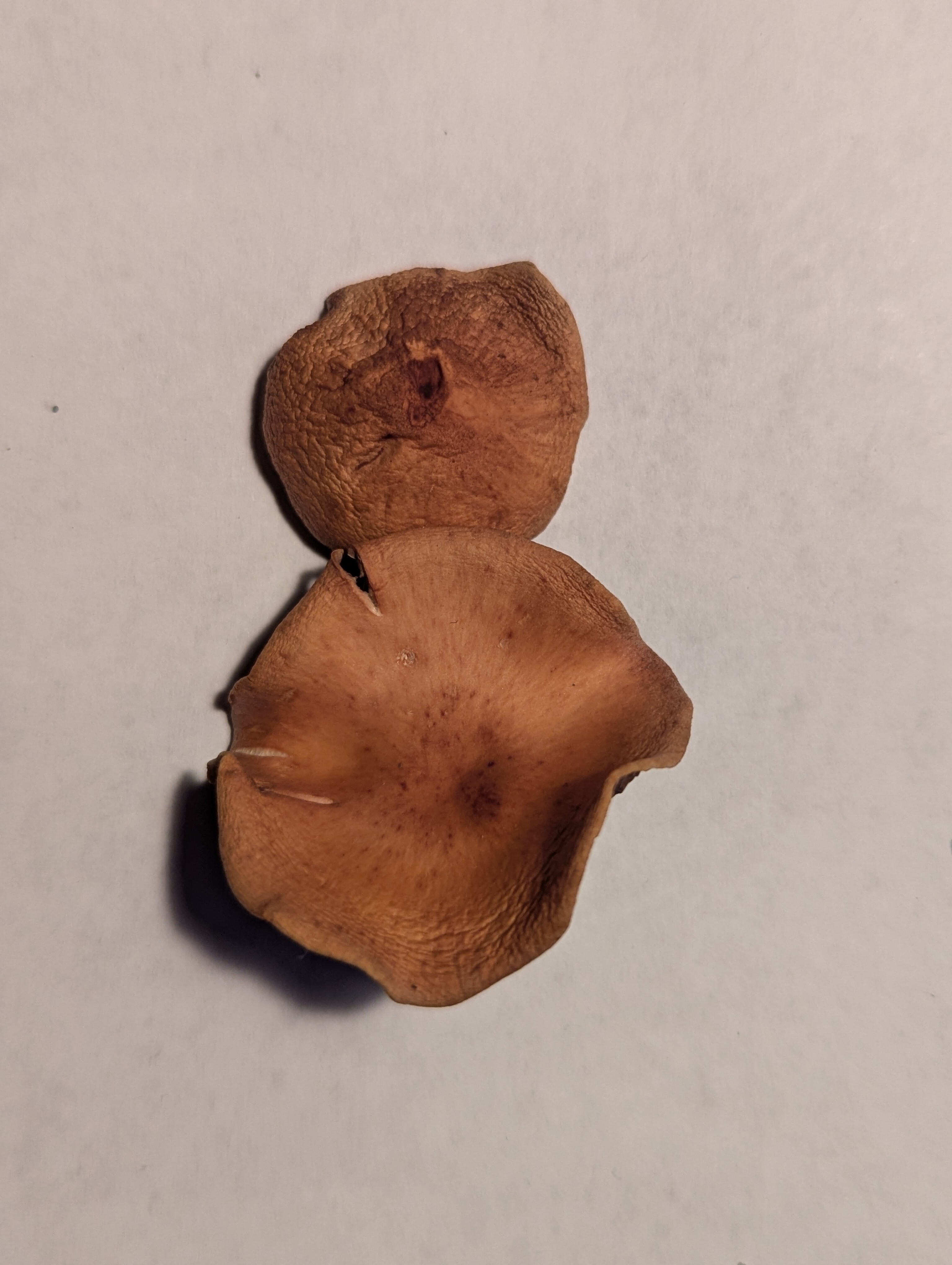
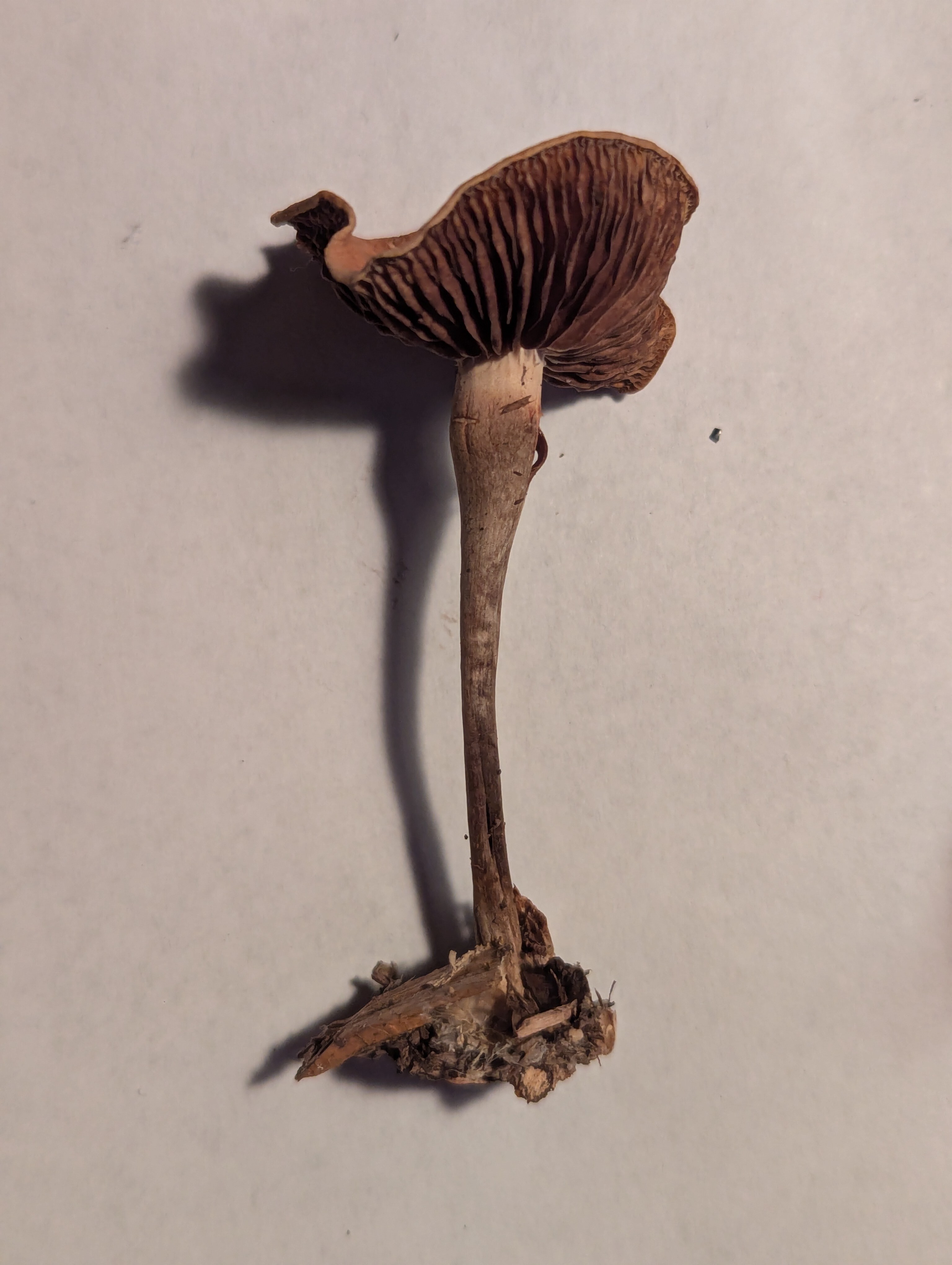
Examples of the colony, and the location/substrate in which it was growing:
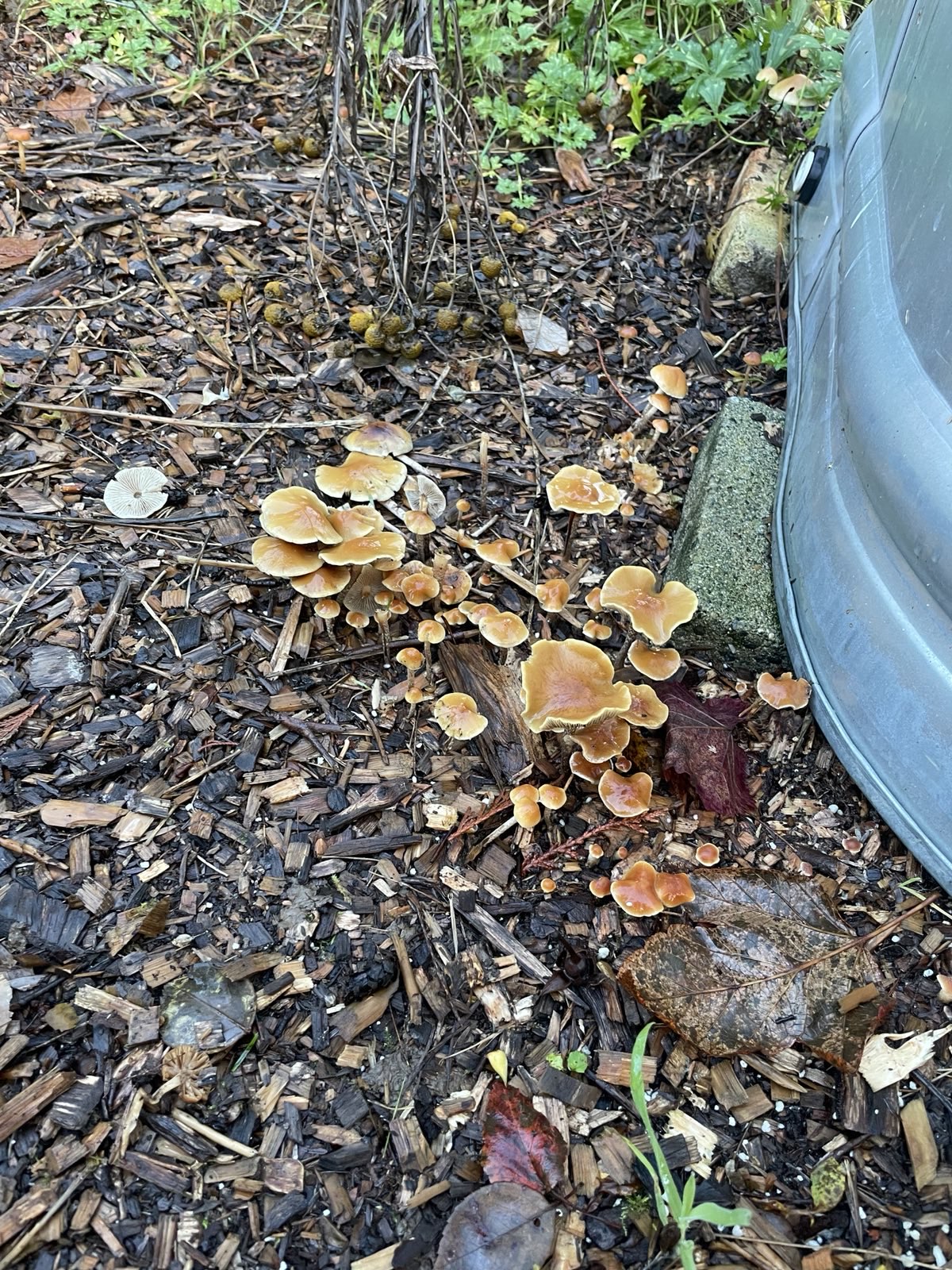
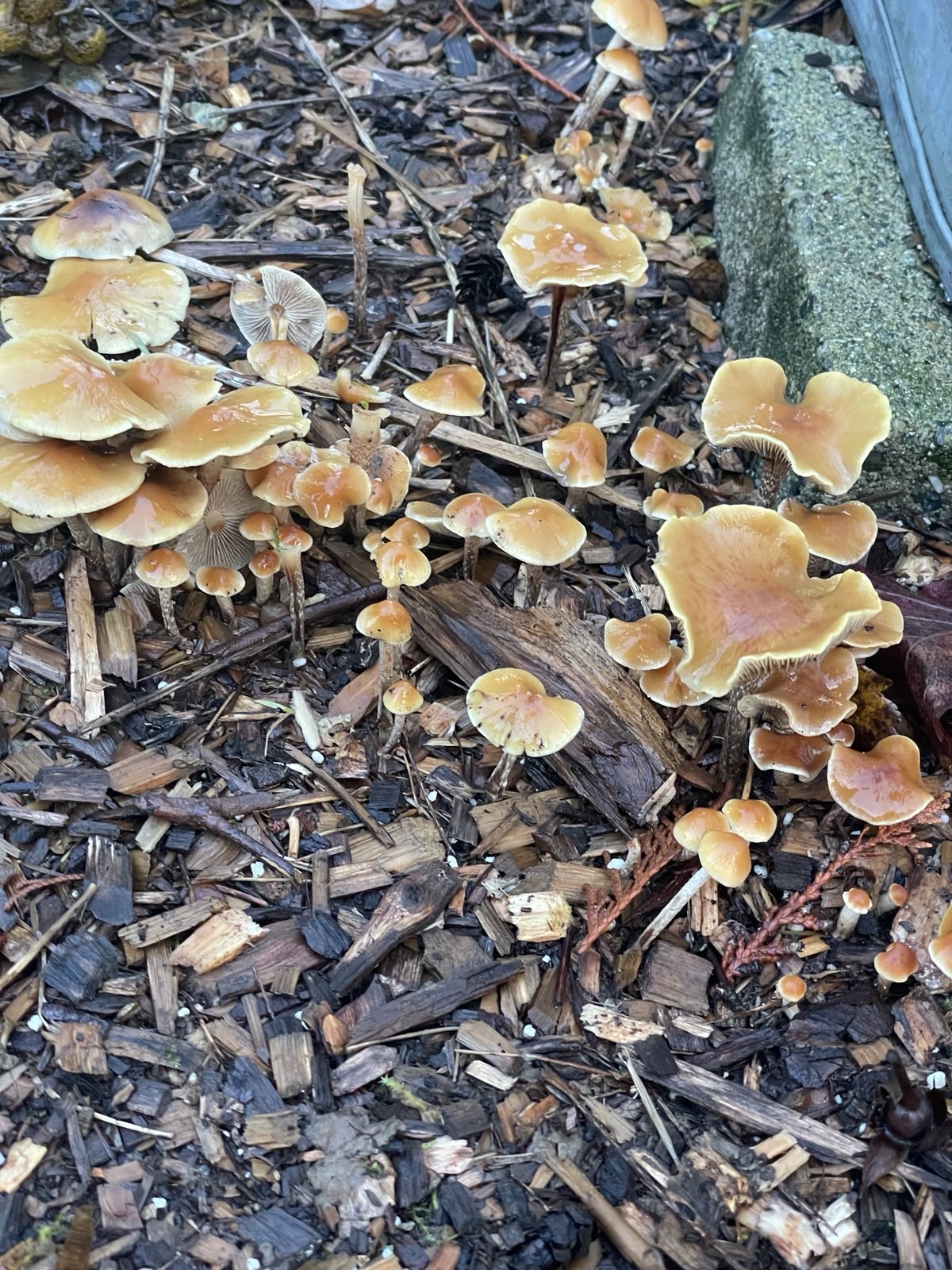
My initial thought was that they were Psilocybe cyanescens, but that’s pretty much completely been confirmed as incorrect [1][2][3][4][5]. The current running theory is that they are Hypholoma dispersum[2][3]. What do you think they are?
References
- @Fliegenpilzgü[email protected]. [To: “Found in mid-November in Cascadia. What are they? Please see the description for more information.”. “Kalcifer” (@[email protected]). “Forage Fellows 🍄🌱” ([email protected]).]. sh.itjust.works. Lemmy. Published: 2024-11-20T13:30:31Z. Accessed: 2024-11-23T03:16Z. https://sh.itjust.works/post/28348066/15147149.
[…] I’m sorry to disappoint you, but even though they look similar to P. cyanescens, they aren’t.
Cyans have white-ish stems, dark gills, a purple-black spore print and bruise blue almost instantly when touching them. […]
- @[email protected]. [To: “Found in mid-November in Cascadia. What are they? Please see the description for more information.”. “Kalcifer” (@[email protected]). “Forage Fellows 🍄🌱” ([email protected]).] sh.itjust.works. Lemmy. Published: 2024-11-20T03:46:33Z. Accessed: 2024-11-23T03:16Z.
Sorry to disappoint but looks like hypholoma dispersum to me.
- there’s no blueing on the stems or margin in any of your photos, the ones you picked should have had stained blue anywhere you touched them
- The margin isn’t translucent striate
If the cap cuticle is peelable you could make a case that it’s not Hypholoma but without any blueing it’s gonna be Deconica not Psilocybe.
- @[email protected]. [To: “Found in mid-November in Cascadia. What are they? Please see the description for more information.”. “Kalcifer” (@[email protected]). “Forage Fellows 🍄🌱” ([email protected])]. sh.itjust.works. Lemmy. Published: 2024-11-22T16:16:30Z. Accessed: 2024-11-23T03:21Z. https://sh.itjust.works/post/28348066/15185707.
That’s consistent with Hypholoma, maybe next time.
- @[email protected]. [To: “Found in mid-November in Cascadia. What are they? Please see the description for more information.”. “Kalcifer” (@[email protected]). “What’s this fungus?” ([email protected]).]. sh.itjust.works. Lemmy. Published: 2024-11-21T00:25:10Z. Accessed: 2024-11-23T03:27Z. https://sh.itjust.works/post/28348065/15157911.
[…] If I would see even a tiny speck of blue bruising I would be more inclined to agree with P. cyanescens, but I don’t see any at all, which makes me very suspicious. […]
- @[email protected] [To: “Found in mid-November in Cascadia. What are they? Please see the description for more information.”. “Kalcifer” (@[email protected]). “Mushrooms” ([email protected]). sh.itjust.works. Lemmy. Published: 2024-11-23T02:12:43Z. Accessed: 2024-11-23T03:36Z. https://sh.itjust.works/post/28348063.]. sh.itjust.works. Lemmy. Published: 2024-11-20T17:44:30Z. Accessed: 2024-11-23T03:37Z. https://sh.itjust.works/post/28348063/15151371.
the spore print is also brown here, but should be purple-ish black if it were Psilocybe spp., also the stipe looks wrong for that ID - I would say definitely not Psilocybe cyanescens (not just because they’re not bruising blue / purple / black).
Cross-posts:

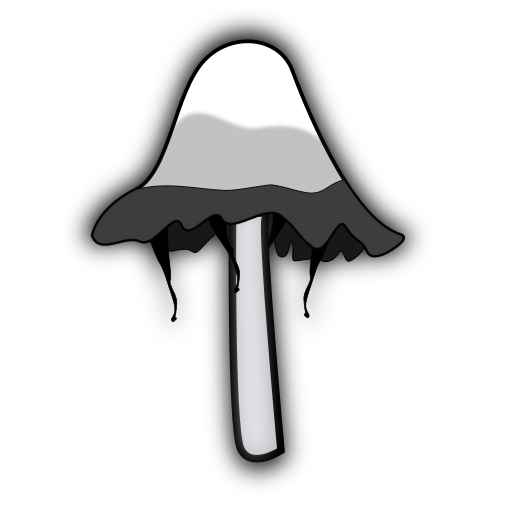
Oh the photos just loaded.
Growing from hemlock with a darkish brown and fine spore I’d say
Hypholoma fasciculare
Hmm. I at least don’t think that it’s fasciculare. The stipe should have a collar [1.1] (though, I question this as none of the images I see seem to shop a collar), which this doesn’t. The caps should be convex [1.1], which they aren’t — the babies are somewhat, but the mature one’s are wavy. From the picture’s that I’ve seen, the color is also off — they’re shown as more yellow [1.2][2], where this one is not yellow — the color of the specimens that I’ve observed is, in general, very different.
References
I agree with hypholoma but fasciculare doesn’t have white fibrils on the stipe like some of those do. Dispersum is a better match IMO.
Not having the mushrooms directly at hand your estimation is as good as mine.